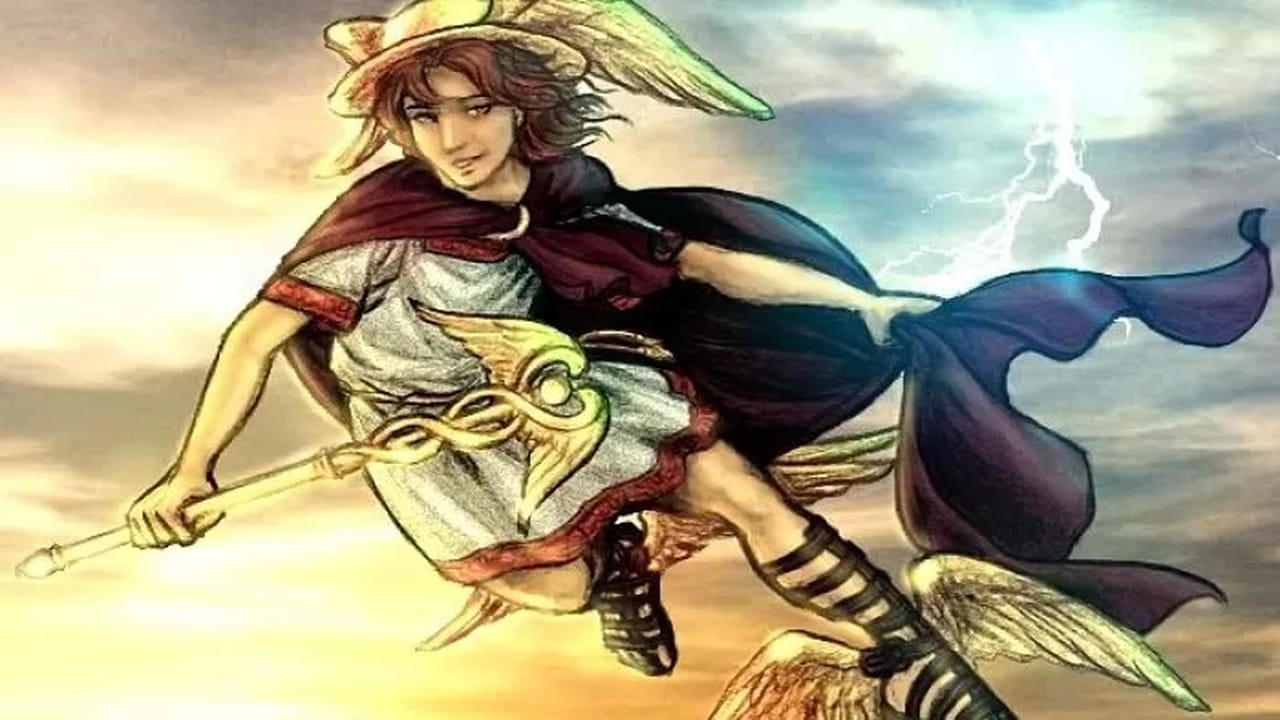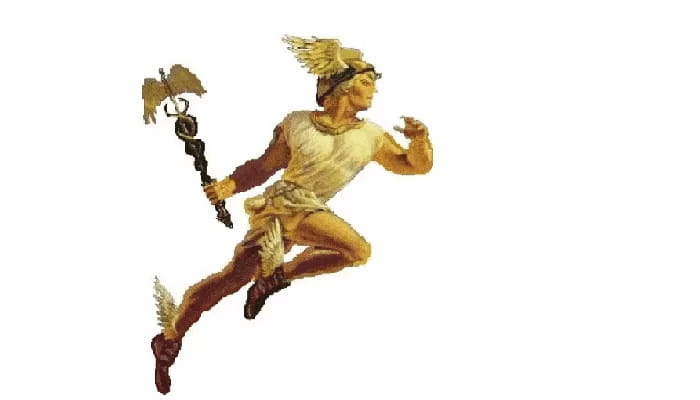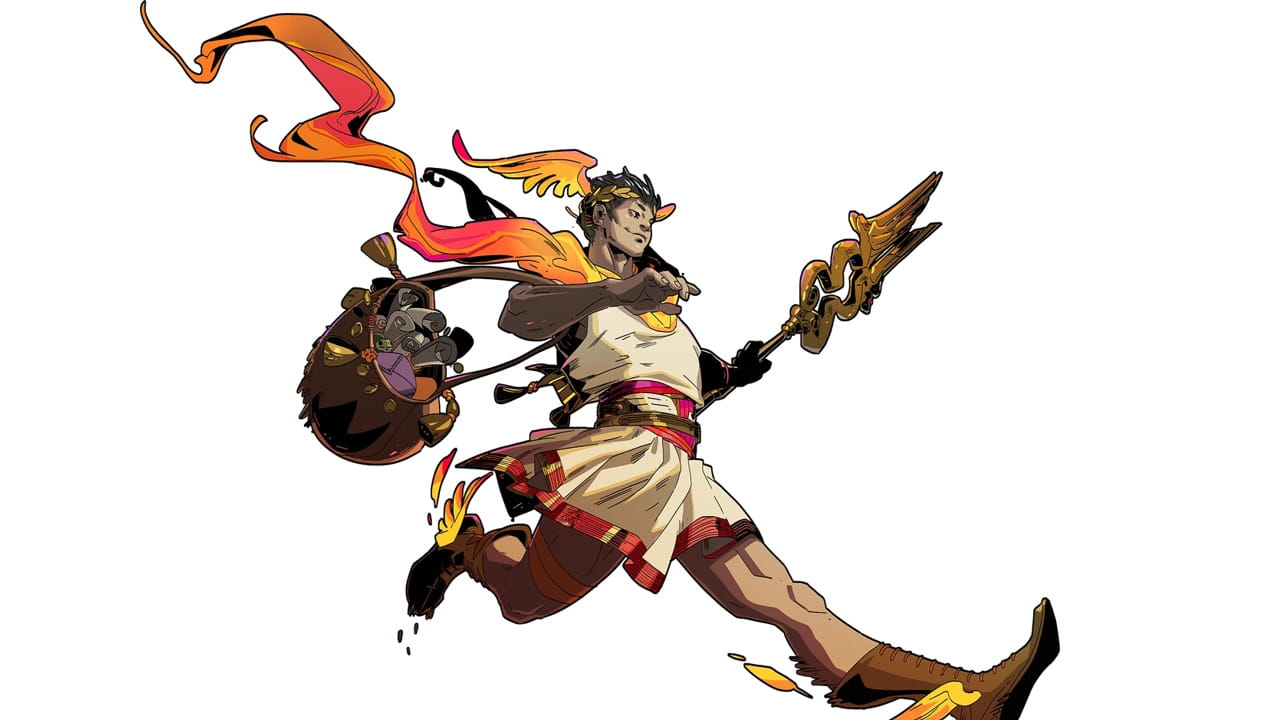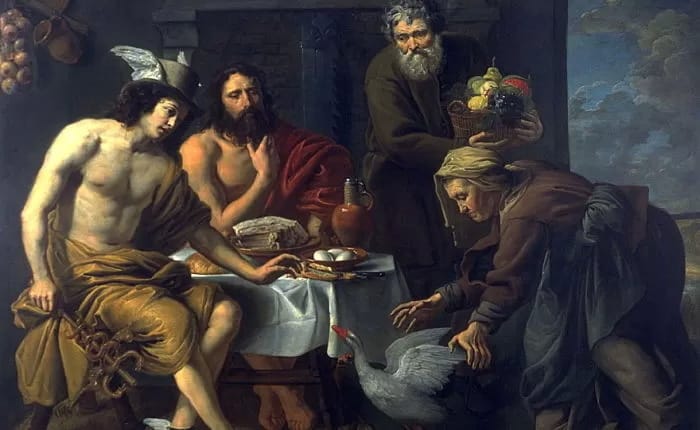Hermes, Greek god, son of Zeus and the Pleiad Maia; often identified with the Roman Mercury and with Casmilus or Cadmilus, one of the Cabeiri.
His name probably derives from herm, the Greek word meaning a heap of stones, as used in the country to indicate boundaries or as a landmark. The first center of her cult was probably Arcadia, where Mount Cyllene was known to be her birthplace. There he was especially worshipped as the god of fertility, and his images were Italic.

Who was Hermes?
Hermes was a Greek god and one of the twelve Olympians who lived on Mount Olympus. His main job was to serve as a messenger of the gods. He was able to travel very fast and could easily move between the realms of the gods, humans and the dead. He was known as a cunning trickster.
Birth of Hermes
Hermes was the son of the Greek god Zeus and the mountain nymph Maia. Maia gave birth to Hermes in a mountain cave and then fell asleep exhausted. Hermes then sneaked out and stole some cattle from the god Apollo. Back in the cave, Hermes found a tortoise and invented the lyre (a stringed musical instrument) from its shell. Apollo later learned of the theft and demanded the cattle back. When Apollo approached, Hermes began to play the lyre. Apollo was so impressed that he let Hermes keep the cattle in exchange for the lyre.
How did Hermes normally picture himself?
Hermes was usually depicted as a young, athletic god without a beard. He wore winged sandals (which gave him super speed) and sometimes a winged cap. He also carried a special staff called a caduceus that had wings on top and was entwined by two snakes.
What powers and abilities did he have?
Like all Greek gods, Hermes was immortal (he could not die) and very powerful. His special ability was speed. He was the fastest of the gods and used his speed to carry messages for the other gods. He helped carry the dead to the Underworld and could put people to sleep with his wand.
Messenger of the gods
As the chief messenger of the gods, especially Zeus, Hermes appears in many tales of mythology. Hermes’ speed and skill as a speaker made him an excellent messenger. He would carry Zeus’ orders to other gods and creatures, as when he told the nymph Calypso to free Odysseus in Homer’s Odyssey. Hermes gained speed with his winged sandals that allowed him to fly like a bird and move like the wind.

Inventor
Because Hermes was intelligent, he was often considered the god of invention. Several inventions are attributed to him, such as the Greek alphabet, numbers, music, boxing, gymnastics, astronomy, and (in some tales) fire.
Trickster
From his first act of stealing Apollo’s cattle, Hermes became known as the god of thieves and deception. In many tales, he does not use strength to win battles, but cunning. Whenever Zeus needed something, or someone, recovered, he sent the trickster Hermes. Zeus sent him to steal Zeus’ sinews from the monster Typhon. Hermes also helped the god Ares to secretly escape from the giants of Aloadai.
Representation of Hermes
In both literature and cult, Hermes was constantly associated with the protection of cattle and sheep, and was often closely related to the vegetation deities, especially Pan and the nymphs. In the Odyssey, however, he appears primarily as the messenger of the gods and the conductor of the dead to Hades.
Hermes was also a god of reverie, and the Greeks offered him the last libation before sleep. As a messenger, he may also have become the god of roads and gates, and was the protector of travelers. Chance-found treasure was his gift, and any stroke of good luck was attributed to him; this conception and his function as a deity of gain, honest or dishonest, are natural derivatives of his character as a fertility god.

In many respects he was the counterpart of Apollo; like him, Hermes was a patron of music and was credited with the invention of the kithara and sometimes of music itself. He was also the god of eloquence and presided over some types of popular divination.
Hermes’ sacred number was four, and the fourth day of the month was his birthday. In archaic art, apart from stylized Hermes, he was portrayed as a full-grown, bearded man, dressed in a long robe and often wearing a cap and winged boots.
Sometimes he was depicted in his pastoral character, carrying a sheep on his shoulders; at other times he appeared as the messenger of the gods with the kērykeion, or herald’s staff (see caduceus), which was his most frequent attribute. From the late 5th century BC he was portrayed as a naked and beardless young man, a young athlete.
Interesting facts about the Greek god Hermes
- He once took the guise of a slave trader and sold the hero Heracles to the Queen of Lydia. He also helped Heracles capture the three-headed dog Cerberus from the Underworld.
- Hermes often had the job of rescuing and caring for infants such as Dionysus, Arcas and Helen of Troy.
- He disguised himself as a traveler to test the hospitality of mortals.
- It was his job to bring Persephone back from the god Hades in the Underworld.
- He used his lyre to lull the hundred-eyed giant Argus to sleep and then slew the giant to rescue the maiden.


